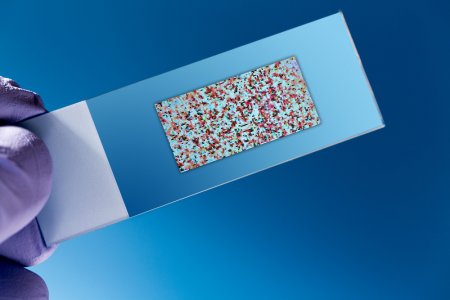Biological age determines predisposition to cancer
A person may look older or younger than their years. In medicine, to refer to this phenomenon there is the concept of biological age. Until recently, for his measurements are not objective criteria there. However, with the development of modern molecular biomedical technologies were methods for determining the biological age. To do this, examine the length of telomeres, or the presence of specific epigenetic changes in DNA.
Researchers from Northwestern University in his work used the latter approach. To do this, they studied the DNA samples isolated from blood 442 volunteers who collected from 1999 to 2013. In total 834 sample was obtained. They were examined by DNA microarray created by the Illumina, capable of detecting epigenetic changes that occur in DNA, but do not affect its genetic sequence. That is why they are called epigenetic.
They represent a small chemical modification of DNA, do not alter the structure of the gene, but their impact on activity. Different types of cells are characterized by different epigenetic changes. In addition, they may arise from cell response to external stimuli, in order to enable it to adapt to it, activating, or, conversely, suppressing operation of certain genes.
It has been a long time noticed that with age people have a more specific epigenetic changes. Under the influence of various adverse effects, they can accumulate in the DNA at high speed. By measuring the number can be determined and the real biological age of a person. Based on this knowledge, scientists from Northwestern University studied 71 epigenetic change in study participants. It turned out that every "extra" years of biological age (as compared with the calendar) by 6% increased risk of cancer within three years from the date of analysis. The risk of death from cancer for 5 years increased by 17%. Accordingly, the longer the gap between biological and calendar age, the higher the risk of cancer. The volunteers, who in the course of the study developed cancer, epigenetic age was more than six months of the calendar. And those who during the study died from cancer - by 2.2 years higher.
Today, the technology is not yet available for commercial use. Researchers have yet to focus on other tasks - checking the possibility of reducing the biological age with the help of a healthy diet and exercise.
Researchers from Northwestern University in his work used the latter approach. To do this, they studied the DNA samples isolated from blood 442 volunteers who collected from 1999 to 2013. In total 834 sample was obtained. They were examined by DNA microarray created by the Illumina, capable of detecting epigenetic changes that occur in DNA, but do not affect its genetic sequence. That is why they are called epigenetic.
They represent a small chemical modification of DNA, do not alter the structure of the gene, but their impact on activity. Different types of cells are characterized by different epigenetic changes. In addition, they may arise from cell response to external stimuli, in order to enable it to adapt to it, activating, or, conversely, suppressing operation of certain genes.
It has been a long time noticed that with age people have a more specific epigenetic changes. Under the influence of various adverse effects, they can accumulate in the DNA at high speed. By measuring the number can be determined and the real biological age of a person. Based on this knowledge, scientists from Northwestern University studied 71 epigenetic change in study participants. It turned out that every "extra" years of biological age (as compared with the calendar) by 6% increased risk of cancer within three years from the date of analysis. The risk of death from cancer for 5 years increased by 17%. Accordingly, the longer the gap between biological and calendar age, the higher the risk of cancer. The volunteers, who in the course of the study developed cancer, epigenetic age was more than six months of the calendar. And those who during the study died from cancer - by 2.2 years higher.
Today, the technology is not yet available for commercial use. Researchers have yet to focus on other tasks - checking the possibility of reducing the biological age with the help of a healthy diet and exercise.
